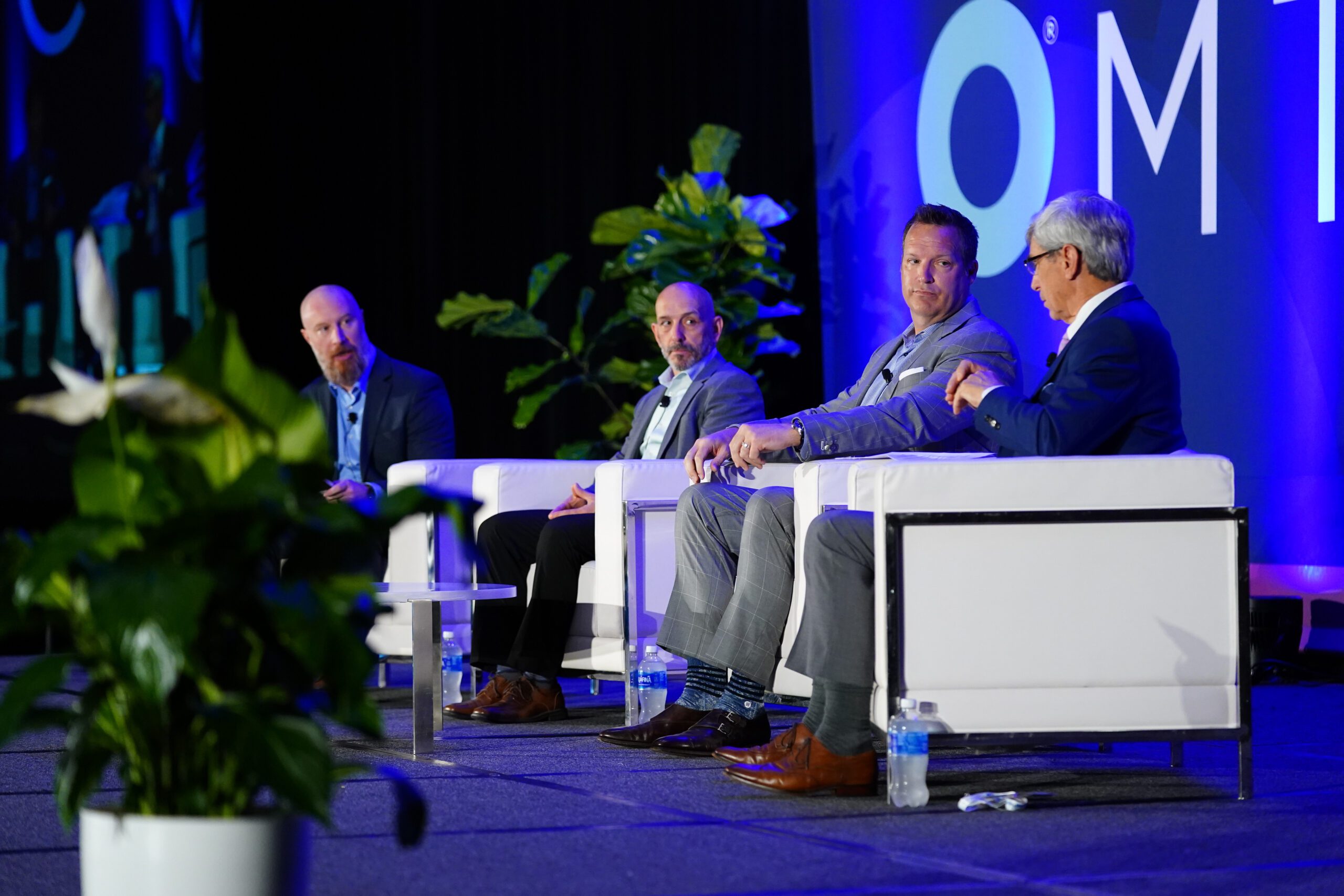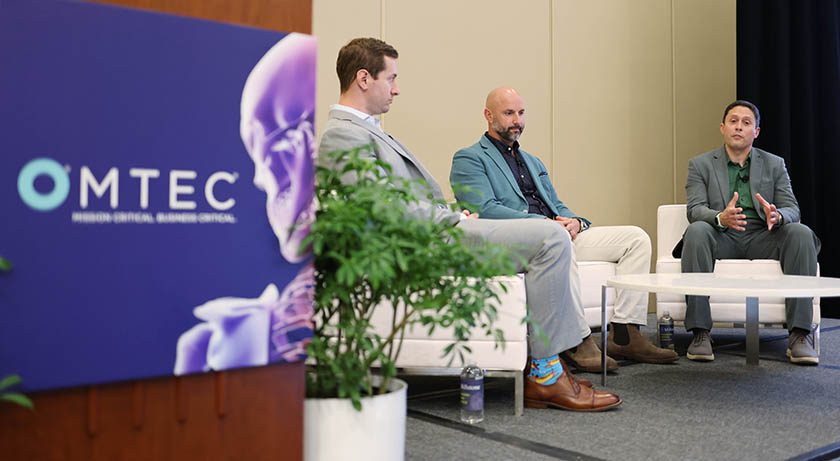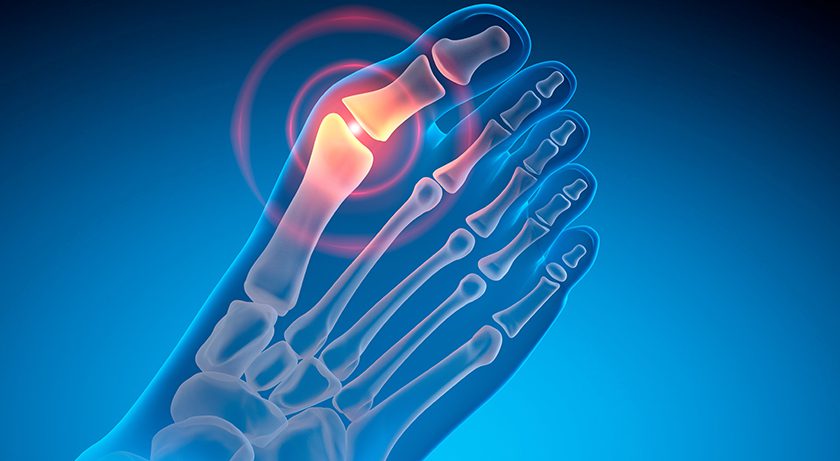

 Copy to clipboard
Copy to clipboard 
We recently spoke with Matt Woods, Founder of Ortho Consulting Group (OCG), about the OUS orthopedic market. OCG is an international management consultancy that focuses on driving growth within the orthopedic and spine industry, “OCG has a wide network within the OUS market, and works with U.S. organizations to support them in building their international business,” according to Woods.
OCG’s services are always bespoke to the needs of the client. They provide a full-service offering for clients needing to grow and manage their OUS business, including regulatory, warehousing, M&A, funding, contractual and legal support, marketing and product management. “The typical size companies that we work with are a pre-revenue startup through to medium-sized businesses,” Woods said.
During our conversation, OCG’s founder touched on three key points as the European orthopedic market adapts in these unpredictable times: the cancellation of industry meetings due to COVID could slow the pace of innovation, EU Medical Device Regulation (MDR), and accelerating M&A activity. The unprecedented challenges facing the market are creating a closer, more collaborative industry.
COVID’s impact in Europe varies significantly by region and country. In speaking with their distributor network, OCG has identified some common threads. While some countries have eased restrictions faster than others, many European markets are bracing for a second surge of the virus. Woods pointed to results from a study by Italian orthopedic trauma surgeon Francesco Ranuccio, M.D., and his team on the effect of COVID on daily orthopedic practice. Of 102 orthopedic surgeons surveyed across Europe, only 2% reported that their work had not been affected. More than half had shifted from orthopedic duties to COVID-19 patient management. Nearly all respondents (98%) stopped or scaled-down surgical activity, performing only trauma and emergency procedures.
Event Cancellations Hurt Innovative Startups
The cancellations of industry conferences due to COVID has fundamentally changed orthopedic business in 2020. Like most of the orthopedic industry, OCG travelled extensively in 2019; their team visited 43 international cities over 60 international trips. This year, the team has undertaken a total of five visits. The lack of face-to-face interaction disrupts multiple aspects of business including sales and education. Smaller companies that drive innovation in orthopedics are especially at a disadvantage without live conferences and have had to adapt quickly.
Woods said, “While virtual meetings and online interactions are not quite the same as being face to face, we’ve had to react to the challenges COVID presents and find new and innovative ways to connect. The first conference cancellation for us was the American Academy of Orthopedics (AAOS) in the U.S. Instead of cancelling the event altogether, we kept the days we would have been attending the conference blocked out in our diaries to book as many virtual meetings as possible. We created a social media campaign to also help book meetings with connections we may not have spoken to before, as well. We knew this would be the perfect opportunity to catch up with individuals who were also meant to be attending the event. We have also managed to adapt and guide our clients into expanding their global sales channels in different ways. This has been achieved by producing demonstration videos, running webinar training to distributors and their sales teams and app development with key product information and feedback forms.
“My question would be, how do the small companies cope? Some of these conferences, they’re the key events to getting their companies off the ground. They help build the first initial connection and help create brand awareness for start-up companies who are new to the industry.”
While purely virtual conferences may not entirely supplant live exhibitions, OCG’s founder does see the industry adapting. “Are companies going to send such large amounts of numbers from their team to something like AAOS? Probably not. As it stands, it might become smaller, and the orthopedic industry might send only key personnel. This benefits companies as it becomes a massive cost savings, which can be used for another function within their business.
“However, they are important because companies can use them as a chance to learn together. Conferences are great opportunities for international companies to get their different teams to meet and collaborate. I do think the exhibition circuit will recover, but will have to adapt. I think that virtual training is going to become a new way of doing business, and that V.R. technology will play a big role within this. There’s some great innovation that will help with that, but I’m still a firm believer that face to face and spending time together is crucial,” said Woods.
MDR Accelerates Portfolio Consolidation and Divestiture
According to Woods, this is the most unprecedented time in Ortho Consulting Group’s 10-year history, as clients need support not only through COVID but also MDR and Brexit. He said, “The other elephant in the room is that we’ve also got to navigate MDR. We hear frequently as a business about the lack of notified bodies available to support the transition to MDR, and the financial burden of the MDR transition. It will mean that products will be potentially taken off the market as a result of companies having to make choices with regard to moving forward with MDR for their entire portfolios. It’s a hard time. And then for us in the U.K., we’ve got Brexit as well. It’s a year that a lot of people don’t particularly want to repeat. But it’s a year that’s requiring so many of us to adapt and find ways to navigate it.”
OCG understands the challenges firsthand, as part of the company’s groups includes Osteotec, an orthopedic extremities distributor and manufacturer within the U.K. Navigating MDR is currently challenging due to the massive backlog of products going through the process. Woods expects many companies to contract their portfolios as a result. He pointed to recent mergers and acquisitions in orthopedics as examples of companies facing mounting challenges in the EU “I don’t know how large-scale acquisitions are going to get through this at the moment, having to go through a massive acquisition, COVID and with these MDR issues, it’s a challenging time. However, it’s great to see that acquisitions are still going ahead,” he said.
Woods noted an increase in M&A activity in recent months as companies weigh the option to sell entirely or offload portions of their portfolio. He said, “I think there are going to be companies that are coming through this that maybe want to sell at this point, or there’s going to be a huge amount of portfolio rationalization, or we’re also going to see products that maybe have got two or three years left on their lifecycle with MDD and companies don’t want to put them through MDR. We’re going to start to see some of these sold or made obsolete as well through the process. It’s an exciting time for companies with the capital to buy up these product lines to expand their portfolios. We are currently supporting companies on both sides of the M&A cycle; selling and buying.”
Challenges Bring Orthopedic Industry Closer Together
Despite the unprecedented challenges facing the market, OCG’s conversations with distributors and clients highlight a growing sense of cooperation across orthopedics in Europe, and continued optimism for the orthopedic industry and its recovery in 2021 and beyond. Woods said, “We’re seeing a lot of people coming together. A lot of the work that we do is between the relationship with a manufacturer and a distributor. What’s positive to see is how both sides in that relationship are trying to support each other and be sympathetic. We’re seeing new ways that manufacturers are trying to adapt and support their distribution network so that they can then come through this.”
Partners are collaborating more closely, and distributors in different countries are also sharing their experience and knowledge. Woods continued, “We’re seeing other markets talk to each other. I’ve been on a few calls where there’ve been distributors, maybe from Germany, spending time talking to a distributor they know in France. Markets are trying to learn from each other as to how that recovery is looking and ways that we can work together. Particularly in Europe, we’re starting to see the support for each other.”
Woods said the best distributors are entrepreneurial and highly focused. They’ve learned to adapt quickly and leverage time away from hospitals as they look to capitalize on every situation. Webinars, other online materials and new product introductions continue to drive the industry forward. Surgeons, likewise, are seeking out education even as they’re called upon for non-orthopedic duties. “I’ve seen so many people try to spend as much time as they can with surgeons. Surgeons want to continue their education. It’s great to see that innovation in the orthopedic industry is still taking steps forward so as we can come out of this as the innovative industry that we love,” said Woods.
As Europe grapples with regulatory changes and a second wave of COVID infections, OCG remains focused on its client relationships. The company spends a great deal of time talking to its large distributor client base, surgeons and key opinion leaders. Woods is encouraged by the resolve he sees in the orthopedic industry. He said, “The topics of conversations and seeing the way that people are in survival mode at the moment, it’s good to see. The coming together, the support that people are trying to provide each other, and lessons they’re trying to learn has been fantastic.”
We recently spoke with Matt Woods, Founder of Ortho Consulting Group (OCG), about the OUS orthopedic market. OCG is an international management consultancy that focuses on driving growth within the orthopedic and spine industry, “OCG has a wide network within the OUS market, and works with U.S. organizations to support them in building their...
We recently spoke with Matt Woods, Founder of Ortho Consulting Group (OCG), about the OUS orthopedic market. OCG is an international management consultancy that focuses on driving growth within the orthopedic and spine industry, “OCG has a wide network within the OUS market, and works with U.S. organizations to support them in building their international business,” according to Woods.
OCG’s services are always bespoke to the needs of the client. They provide a full-service offering for clients needing to grow and manage their OUS business, including regulatory, warehousing, M&A, funding, contractual and legal support, marketing and product management. “The typical size companies that we work with are a pre-revenue startup through to medium-sized businesses,” Woods said.
During our conversation, OCG’s founder touched on three key points as the European orthopedic market adapts in these unpredictable times: the cancellation of industry meetings due to COVID could slow the pace of innovation, EU Medical Device Regulation (MDR), and accelerating M&A activity. The unprecedented challenges facing the market are creating a closer, more collaborative industry.
COVID’s impact in Europe varies significantly by region and country. In speaking with their distributor network, OCG has identified some common threads. While some countries have eased restrictions faster than others, many European markets are bracing for a second surge of the virus. Woods pointed to results from a study by Italian orthopedic trauma surgeon Francesco Ranuccio, M.D., and his team on the effect of COVID on daily orthopedic practice. Of 102 orthopedic surgeons surveyed across Europe, only 2% reported that their work had not been affected. More than half had shifted from orthopedic duties to COVID-19 patient management. Nearly all respondents (98%) stopped or scaled-down surgical activity, performing only trauma and emergency procedures.
Event Cancellations Hurt Innovative Startups
The cancellations of industry conferences due to COVID has fundamentally changed orthopedic business in 2020. Like most of the orthopedic industry, OCG travelled extensively in 2019; their team visited 43 international cities over 60 international trips. This year, the team has undertaken a total of five visits. The lack of face-to-face interaction disrupts multiple aspects of business including sales and education. Smaller companies that drive innovation in orthopedics are especially at a disadvantage without live conferences and have had to adapt quickly.
Woods said, “While virtual meetings and online interactions are not quite the same as being face to face, we’ve had to react to the challenges COVID presents and find new and innovative ways to connect. The first conference cancellation for us was the American Academy of Orthopedics (AAOS) in the U.S. Instead of cancelling the event altogether, we kept the days we would have been attending the conference blocked out in our diaries to book as many virtual meetings as possible. We created a social media campaign to also help book meetings with connections we may not have spoken to before, as well. We knew this would be the perfect opportunity to catch up with individuals who were also meant to be attending the event. We have also managed to adapt and guide our clients into expanding their global sales channels in different ways. This has been achieved by producing demonstration videos, running webinar training to distributors and their sales teams and app development with key product information and feedback forms.
“My question would be, how do the small companies cope? Some of these conferences, they’re the key events to getting their companies off the ground. They help build the first initial connection and help create brand awareness for start-up companies who are new to the industry.”
While purely virtual conferences may not entirely supplant live exhibitions, OCG’s founder does see the industry adapting. “Are companies going to send such large amounts of numbers from their team to something like AAOS? Probably not. As it stands, it might become smaller, and the orthopedic industry might send only key personnel. This benefits companies as it becomes a massive cost savings, which can be used for another function within their business.
“However, they are important because companies can use them as a chance to learn together. Conferences are great opportunities for international companies to get their different teams to meet and collaborate. I do think the exhibition circuit will recover, but will have to adapt. I think that virtual training is going to become a new way of doing business, and that V.R. technology will play a big role within this. There’s some great innovation that will help with that, but I’m still a firm believer that face to face and spending time together is crucial,” said Woods.
MDR Accelerates Portfolio Consolidation and Divestiture
According to Woods, this is the most unprecedented time in Ortho Consulting Group’s 10-year history, as clients need support not only through COVID but also MDR and Brexit. He said, “The other elephant in the room is that we’ve also got to navigate MDR. We hear frequently as a business about the lack of notified bodies available to support the transition to MDR, and the financial burden of the MDR transition. It will mean that products will be potentially taken off the market as a result of companies having to make choices with regard to moving forward with MDR for their entire portfolios. It’s a hard time. And then for us in the U.K., we’ve got Brexit as well. It’s a year that a lot of people don’t particularly want to repeat. But it’s a year that’s requiring so many of us to adapt and find ways to navigate it.”
OCG understands the challenges firsthand, as part of the company’s groups includes Osteotec, an orthopedic extremities distributor and manufacturer within the U.K. Navigating MDR is currently challenging due to the massive backlog of products going through the process. Woods expects many companies to contract their portfolios as a result. He pointed to recent mergers and acquisitions in orthopedics as examples of companies facing mounting challenges in the EU “I don’t know how large-scale acquisitions are going to get through this at the moment, having to go through a massive acquisition, COVID and with these MDR issues, it’s a challenging time. However, it’s great to see that acquisitions are still going ahead,” he said.
Woods noted an increase in M&A activity in recent months as companies weigh the option to sell entirely or offload portions of their portfolio. He said, “I think there are going to be companies that are coming through this that maybe want to sell at this point, or there’s going to be a huge amount of portfolio rationalization, or we’re also going to see products that maybe have got two or three years left on their lifecycle with MDD and companies don’t want to put them through MDR. We’re going to start to see some of these sold or made obsolete as well through the process. It’s an exciting time for companies with the capital to buy up these product lines to expand their portfolios. We are currently supporting companies on both sides of the M&A cycle; selling and buying.”
Challenges Bring Orthopedic Industry Closer Together
Despite the unprecedented challenges facing the market, OCG’s conversations with distributors and clients highlight a growing sense of cooperation across orthopedics in Europe, and continued optimism for the orthopedic industry and its recovery in 2021 and beyond. Woods said, “We’re seeing a lot of people coming together. A lot of the work that we do is between the relationship with a manufacturer and a distributor. What’s positive to see is how both sides in that relationship are trying to support each other and be sympathetic. We’re seeing new ways that manufacturers are trying to adapt and support their distribution network so that they can then come through this.”
Partners are collaborating more closely, and distributors in different countries are also sharing their experience and knowledge. Woods continued, “We’re seeing other markets talk to each other. I’ve been on a few calls where there’ve been distributors, maybe from Germany, spending time talking to a distributor they know in France. Markets are trying to learn from each other as to how that recovery is looking and ways that we can work together. Particularly in Europe, we’re starting to see the support for each other.”
Woods said the best distributors are entrepreneurial and highly focused. They’ve learned to adapt quickly and leverage time away from hospitals as they look to capitalize on every situation. Webinars, other online materials and new product introductions continue to drive the industry forward. Surgeons, likewise, are seeking out education even as they’re called upon for non-orthopedic duties. “I’ve seen so many people try to spend as much time as they can with surgeons. Surgeons want to continue their education. It’s great to see that innovation in the orthopedic industry is still taking steps forward so as we can come out of this as the innovative industry that we love,” said Woods.
As Europe grapples with regulatory changes and a second wave of COVID infections, OCG remains focused on its client relationships. The company spends a great deal of time talking to its large distributor client base, surgeons and key opinion leaders. Woods is encouraged by the resolve he sees in the orthopedic industry. He said, “The topics of conversations and seeing the way that people are in survival mode at the moment, it’s good to see. The coming together, the support that people are trying to provide each other, and lessons they’re trying to learn has been fantastic.”

You are out of free articles for this month
Subscribe as a Guest for $0 and unlock a total of 5 articles per month.
You are out of five articles for this month
Subscribe as an Executive Member for access to unlimited articles, THE ORTHOPAEDIC INDUSTRY ANNUAL REPORT and more.
ME
Mike Evers is a Senior Market Analyst and writer with over 15 years of experience in the medical industry, spanning cardiac rhythm management, ER coding and billing, and orthopedics. He joined ORTHOWORLD in 2018, where he provides market analysis and editorial coverage.







